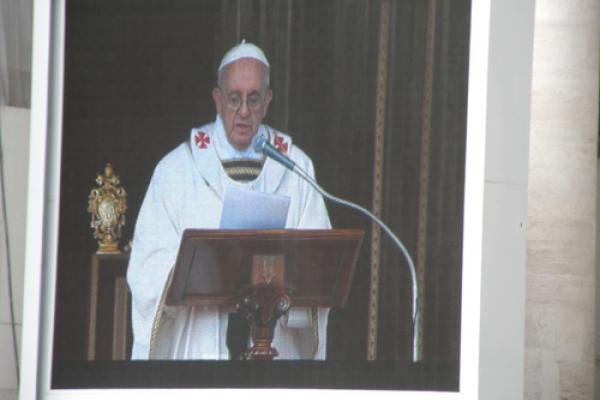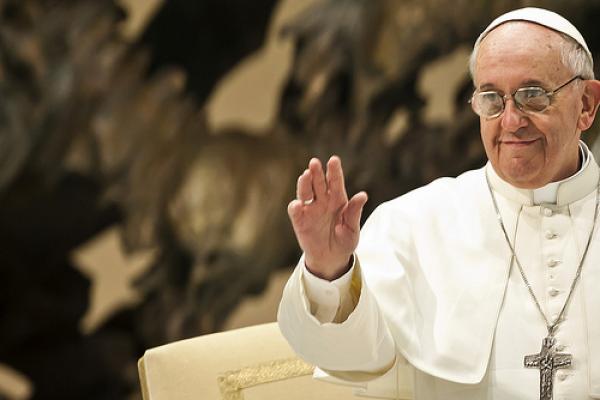Ever since the most recent MTV Video Music Awards aired, there has been a breathless competition online to see who can be more offended by Miley Cyrus’ highly sexualized performance. Yes, I watched it, and yes, much of it made me pretty uncomfortable. It was hard for me not to imagine my own daughter a dozen or so years from now, longing to replicate the gyrations and sexual gestures of another – but similarly overt – pop idol.
Basically, it was lowest-common-denominator entertainment: hardly anything new in the music industry. Madonna did as much and then some decades ago, so why is this particular incident such a big deal?
For one thing, one of the most lurid moments of the performance had her grinding in a compromising position with a married man nearly twice her age. Interesting, though, that the criticisms of Miley online have far outweighed those of Robin Thicke, the married man in question who participated in said grinding. Suffice it to say that women historically have been held to different standards of sexual expression than men, and when in doubt, blame the woman. Not that her dance was appropriate, but it tells us more about ourselves when we obsess about the shenanigans of the young woman than the borderline adulterous displays of a much older man.
I have read countless articles from political, religious, and ethical perspectives on why or why not the U.S. should militarily intervene against the Syrian regime. Most do a decent job evaluating the situation, but I have yet to read one that really puts the human element on the table as a deciding factor.
A few months ago I was going to bed in my hotel room in Tel Aviv when I saw the breaking news alert that there was rocket exchange between Hamas and Israel in and around Gaza. While I have been to many places in "conflict," there is something much different about being somewhere that is only miles away from live fire.
I started playing out the situation in my head: "What if this expands into a major conflict? Can I catch a flight back home to be with my family before it gets worse? I'm only 30-40 miles away from the active conflict, am I already in range sitting in this hotel room?"
Anxiety. Fear. Uncertainty.
Now let me be clear, that experience of anxiety and fear is NOTHING compared to what most Israeli's, Palestinians, Egyptians, or Syrian's have felt in recent years (and MANY other populations). But — even if only in some small way — I could immediately feel the weight of pending war. It is palpable. It is crippling. And if I had my family with me, it would have potentially been unbearable.
Pope Francis on Thursday told world leaders gathered in Russia for the G-20 summit that a military intervention in Syria would be “futile,” urging them to focus instead on dialogue and reconciliation to bring peace to the war-torn country.
The Argentine pontiff’s first major foray onto the global stage comes as the U.S. Congress prepares to vote on a military strike against Syria in response to a reported chemical weapons attack outside Damascus on Aug. 21.
For Francis, just six months on the job, the Syria question will test his ability to summon the power of his global bully pulpit and could play a major role in shaping the global image of a man who’s drawn more attention for his down-to-earth pastoral appeal.
“The mosques are our barracks, the domes our helmets, the minarets our bayonets and the faithful our soldiers.”
This was the Islamist poem quoted by the mayor of Istanbul, Turkey, in December 1997. Charged with using inflammatory speech, he was ejected from office and sentenced to jail by the Ankara High Court.
Today, that mayor, Recep Tayyip Erdogan, is prime minister of Turkey. During a decade in office, he has slowly but inexorably pushed secular Turkey, a member of NATO, toward an unabashedly Islamist future.
As a Muslim, I refuse to give up Islam to the Islamists. So should others who believe in a deeply pluralistic Islam of the sort my Indian-born grandparents taught. It is the only path to peaceful resolution of inevitable religious differences, within Islam and with other faiths.
Yet today pluralist manifestations of Islam are contracting. Never before has there been a time when Islam has been more threatened from within. That threat today is twofold: ideological and sectarian.
We learned the story in Sunday School.
Jesus and his inner circle — Peter, the rock, and James and John, the sons of thunder — came down from the Mount of Transfiguration and found the disciples facing their own inability to cast an unclean spirit out of a young boy. Annoyed with the disciples, Jesus says to the father: “If you believe, all things are possible to him who believes.” (Mark 9:23) The father replies: “Lord, I believe; help my unbelief.” (Mark 9:24) Jesus casts out the unclean spirit. Later, when the disciples ask why they were unable to do it, Jesus says that some only come out through prayer and fasting.




